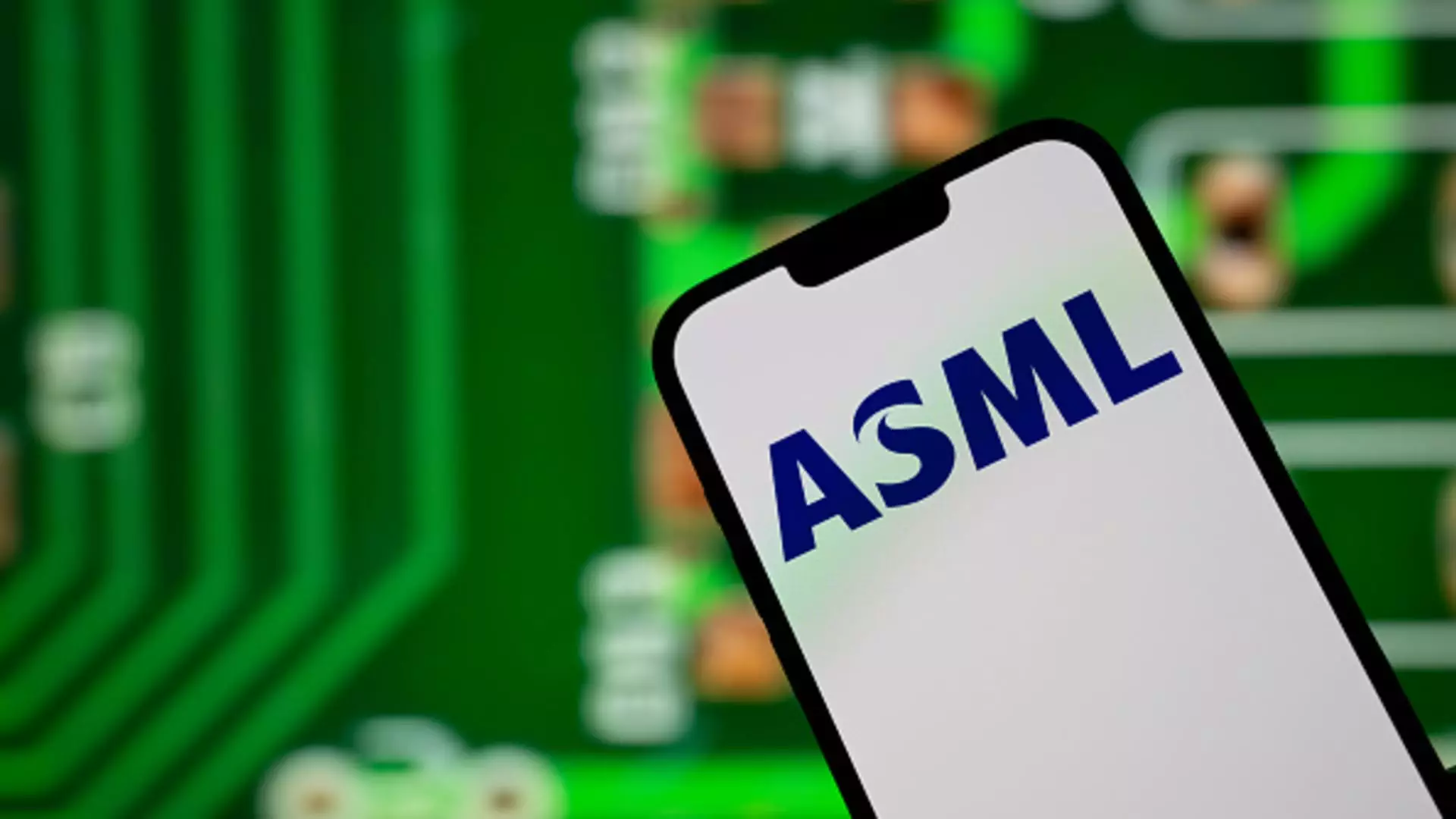ASML, a pivotal player in the semiconductor equipment sector based in the Netherlands, has recently drawn attention for missing net bookings expectations. In the first quarter of 2025, the company’s reported net bookings reached €3.94 billion ($4.47 billion), falling short of the Reuters forecast of €4.89 billion. This deviation signals a broader sentiment of potential vulnerabilities in demand for the sophisticated machinery that undergirds global chip production. The shortfall in bookings raises questions about the robustness of the semiconductor market, particularly in light of the current economic climate.
Financial Performance: Analyzing the Numbers
In terms of overall performance, ASML reported net sales of €7.74 billion and a net profit of €2.36 billion for the quarter. Both figures, while substantial, slightly undercut analyst predictions—€7.8 billion in sales and €2.3 billion in profit. CEO Christophe Fouquet acknowledged the robust nature of demand, predominantly driven by advances in artificial intelligence. However, he tempered optimism with caution, indicating that some customers are grappling with uncertainties that may influence ASML’s trajectory within its full-year revenue forecasts.
Such cautious optimism is emblematic of a market adjusting to oscillating demands and emerging threats. While the revenue guidance for 2025 remains between €30 billion and €35 billion, the conversation has shifted to factors outside ASML’s control, including tariff implications and macroeconomic variables that stymie growth prospects.
Tariffs and Market Uncertainty
Fouquet’s remarks on tariffs highlight a significant backdrop influencing not just ASML but the entire semiconductor ecosystem. Recent tariff announcements from the Biden administration, particularly concerning U.S. markets and trade relationships with key partners, have injected additional complexity into the supply chain. Technology products, including smartphones and computers, were temporarily exempt from enhanced tariffs, but the landscape remains precarious. “This is a dynamic I think we have to watch very carefully,” said Fouquet, indicating the need for agility and foresight amidst unpredictable shifts.
The fragility of global chip stocks in recent weeks underscores the increasing sensitivity of this sector to geopolitical and economic pressures. As countries re-evaluate import regulations and their implications for national security, companies like ASML must prepare for a climate that could dampen demand in the short term.
The Future: A Balancing Act
While ASML is navigating these uncertainties, the interplay between technological innovation and market demand is a constant balancing act. The promise of artificial intelligence and its various applications could provide a way forward, but ongoing vigilance is essential as external factors loom large. The company’s ability to adapt to these challenges will ultimately determine its resilience in a sector characterized by rapid change.
As ASML stands at a crossroads, it embodies both the challenges and opportunities inherent in the semiconductor industry. By keeping a close eye on market dynamics and remaining proactive amid potential headwinds, ASML can leverage its strengths to navigate the complex landscape ahead.

